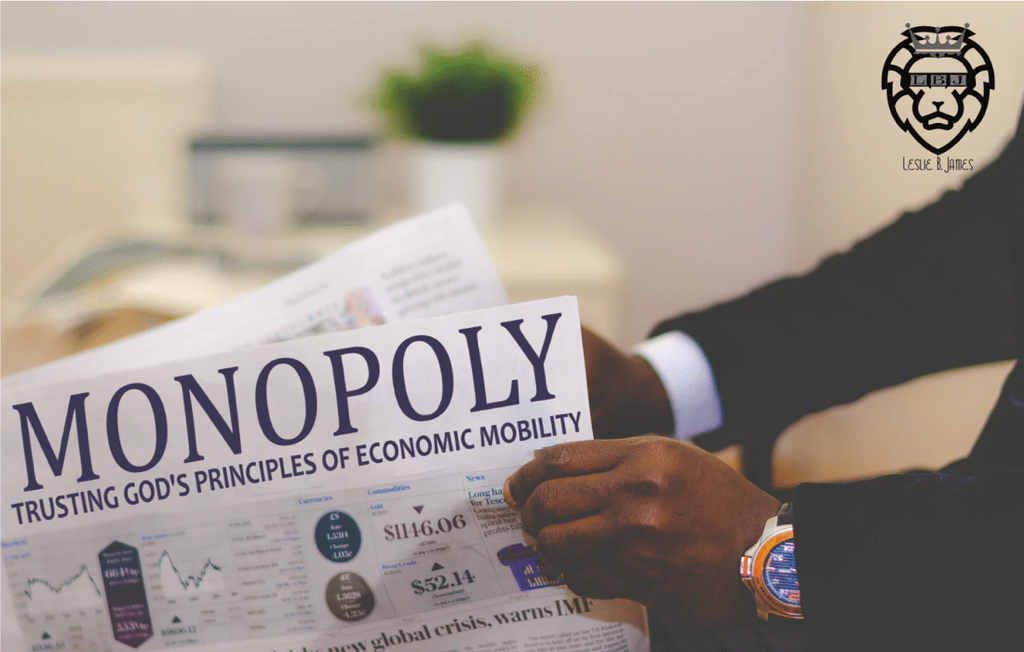All history has been driven by the conflict between those who have material wealth and those who do not. Master and slave, lord and serf, patron and artist, business owner and employees, or, simply said, oppressor and oppressed. The sides today may be simply called the Haves and the Have-Nots, although recent movements may call these groups the “1%” and the “99%,” the “rich” and the “poor,” “job-creators” and “job havers,” or “haves” and “soon-to-haves” respectively.
As I thought about the challenges we face both globally and locally, I was reminded of a childhood game called Monopoly. This is one of the most popular games of all time, and a microcosm for socioeconomic class distinctions in a democratic, capitalist society. Developed and marketed during the Great Depression, Monopoly creates the fantasy for players that, with a little luck and an easily developed skill-set, anyone can be a winner. Most successful people would sum up the ideal for winning at Monopoly: be prepared, know how to negotiate, and understand the dynamics of cash flow.
Unfortunately, mastering these basic skills rarely translates into success in the real world for the average person, as reality removes certain basic advantages that are built into the presumptions of the game. First, rolling dice has more to do with God that luck. Second, you don't start the game of life with $1,500. Third, the opportunities for creating passive income will not present themselves simply by circumnavigating “the board.” Last, and maybe most important: you’re not allows invited to play.
When God created the world, he designed us to cultivate the flourishing of His creation and glorify Him in the process. To do this, he equipped each of us with unique gifts and skills we are to use to “be fruitful and multiply and fill the earth” (Gen. 1:28). This command in Genesis is a call to stewardship. In a world of limited time and resources, we need to make good decisions in order to be faithful stewards of all God gives us.
Although our realities do not allows align with Monopoly, if we look closer, the game presents several biblical principles we can use for economic mobility. If our job as Christians is to honor God in everything we do and be productive with what we are given, then every decision matters. The question is, how do we make God-pleasing decisions? It's a matter of economics, a fancy way of understanding the process of making choices under conditions of scarcity.
COURSE OUTLINE
BONUS: DIVE DEEPER BOOK SUMMARIES
The following book summaries are delivered to your email address.
As I thought about the challenges we face both globally and locally, I was reminded of a childhood game called Monopoly. This is one of the most popular games of all time, and a microcosm for socioeconomic class distinctions in a democratic, capitalist society. Developed and marketed during the Great Depression, Monopoly creates the fantasy for players that, with a little luck and an easily developed skill-set, anyone can be a winner. Most successful people would sum up the ideal for winning at Monopoly: be prepared, know how to negotiate, and understand the dynamics of cash flow.
Unfortunately, mastering these basic skills rarely translates into success in the real world for the average person, as reality removes certain basic advantages that are built into the presumptions of the game. First, rolling dice has more to do with God that luck. Second, you don't start the game of life with $1,500. Third, the opportunities for creating passive income will not present themselves simply by circumnavigating “the board.” Last, and maybe most important: you’re not allows invited to play.
When God created the world, he designed us to cultivate the flourishing of His creation and glorify Him in the process. To do this, he equipped each of us with unique gifts and skills we are to use to “be fruitful and multiply and fill the earth” (Gen. 1:28). This command in Genesis is a call to stewardship. In a world of limited time and resources, we need to make good decisions in order to be faithful stewards of all God gives us.
Although our realities do not allows align with Monopoly, if we look closer, the game presents several biblical principles we can use for economic mobility. If our job as Christians is to honor God in everything we do and be productive with what we are given, then every decision matters. The question is, how do we make God-pleasing decisions? It's a matter of economics, a fancy way of understanding the process of making choices under conditions of scarcity.
COURSE OUTLINE
- Before you roll the dice
- The Reading Railroad
- Deal Making
- The Intelligent Investor
- The Community Chest
- Getting from Baltic to Broadway
BONUS: DIVE DEEPER BOOK SUMMARIES
The following book summaries are delivered to your email address.
- Rich Dad, Poor Dad by Robert Kiyosaki
- I'll Teach You How To Be Rich by Ramit Sethi
- The Compound Effect by Darren Hardy
- The Startup of You by Reid Hoffman
- The Millionaire Next Door by Thomas J. Stanley
